
The City of Toronto has approved streetscape and road safety improvements along Weston Road from Steeles Avenue West to Lanyard Road.
The project aims to improve road safety, provide alternative ways to travel in the area, strengthen connections to transit lines, the Finch Hydro corridor, existing trails and cycling facilities, and improve the streetscape.
The roadway improvements include a new bi-directional cycle track between Lanyard Road and Finch Avenue West, enhanced streetscaping and greenery, new road safety features and upgrades to intersections, transit stops, and accessibility. These improvements support the City’s Vision Zero Road Safety Plan and the TransformTO Net Zero Climate Action Strategy. No vehicular travel lanes will be removed as part of this project.
The roadway improvements will be completed as part of planned road resurfacing along Weston Road in 2026.
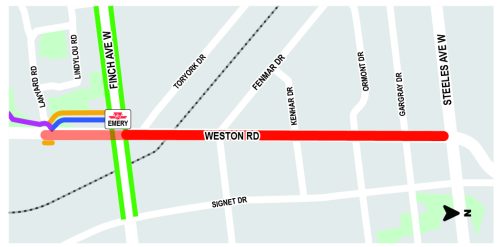

The project extends along Weston Road from Steeles Avenue West to Lanyard Road.

Approved changes include:
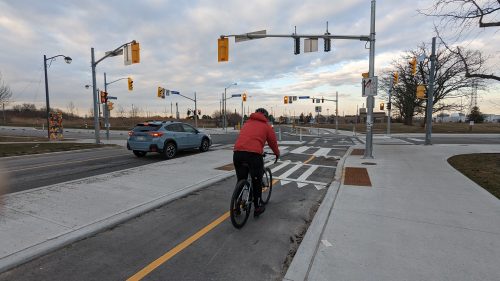
Bi-directional cycle tracks in the boulevard separate from vehicular traffic and pedestrians. There would be no change to existing number of vehicle lanes.
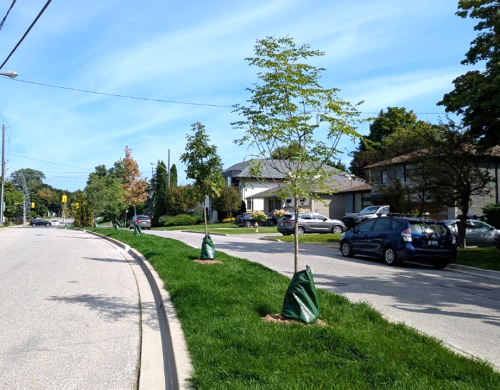
Green medians allow for runoff water from the street to naturally filter and slow down before entering the sewer system.
Planned changes include:
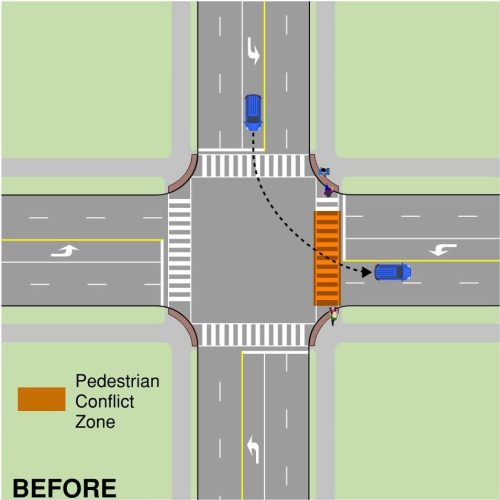
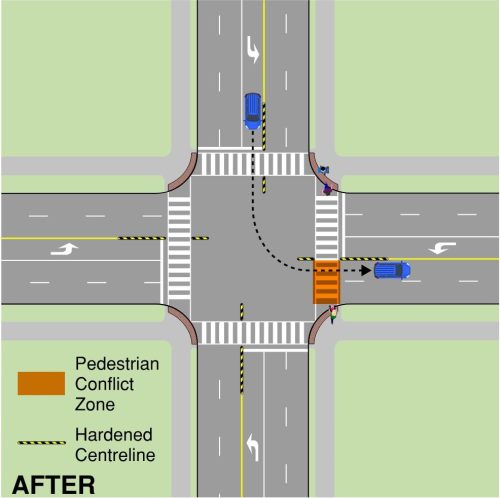
Left-turn calming is installed at intersections to reduce the risk of left-turn collisions. Speed bumps are installed to encourage safer turning behaviour. This addition “hardens” the centerline and encourage people driving to approach the crosswalk at a sharper angle instead of cutting across intersections diagonally, resulting in slower turning speeds and better visibility of people cycling and pedestrians.
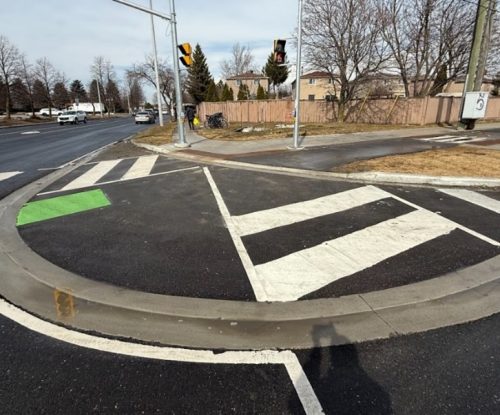
A Truck Apron is a semi-mountable curb that directs smaller vehicles to turn at a reduced speed, while larger trucks can mount the curb when completing a right-turn.
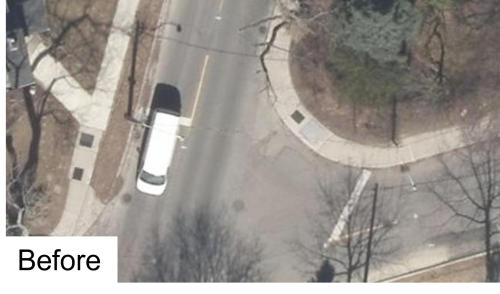
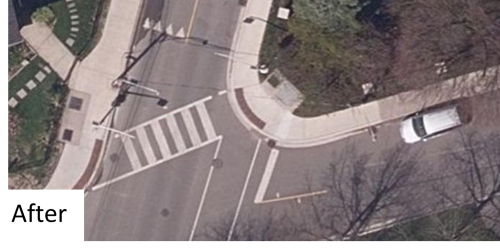
Reduced Curb Radii shortens pedestrian crossing distances and encourages lower motor vehicle speeds.
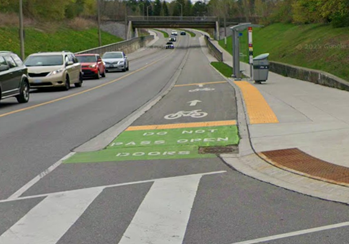
Accessible bike/bus platforms Designate a space for people cycling and transit users. People cycling must yield to anyone crossing the platform.
At Fenmar Drive, the right-turn channel will be removed as part of the planned road work.
The City of Toronto’s policy is to remove right-turn channels where possible and not build new ones. Safety benefits of right-turn channel removals include:
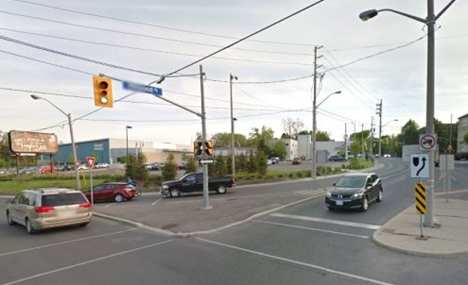
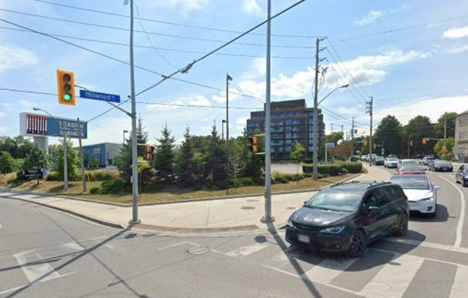
In coordination with the TTC, in support Vision Zero Road Safety Plan objectives, bus stops will be upgraded to current standards where required, and the existing mid-block stops north and south of Kenhar Drive will be removed and riders will be directed to the existing stops at Kenhar Drive which are aligned with the traffic control signal. These changes aim to enhance pedestrian safety, optimize stop spacing, and improve connections to the surrounding area.
There are currently over 140 trees on Weston Road between Steeles Avenue West and Lanyard Road. The City makes every effort to protect and retain healthy trees. Four tree removals will be required on the west side of Weston Road between Finch Avenue and Lanyard Road to make room for the cycle track. New trees will be planted in the area at a ratio of 3:1 to expand the City’s urban tree canopy.
The project team will identify suitable locations for tree planting along the roadway where feasible. Where on-road planting is not possible, new trees will be accommodated elsewhere in the area, such as boulevards, parks, and ravines.
The following are examples of potential streetscape enhancements that can be added as part of the project.
The City’s project team is working in collaboration with the Emery Village BIA to implement streetscaping improvements as part of the project. View the concept designs. Design is subject to change.
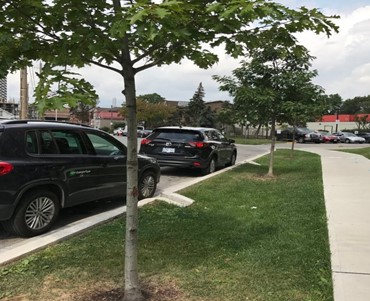
Tree planting in boulevard with sod or meadow
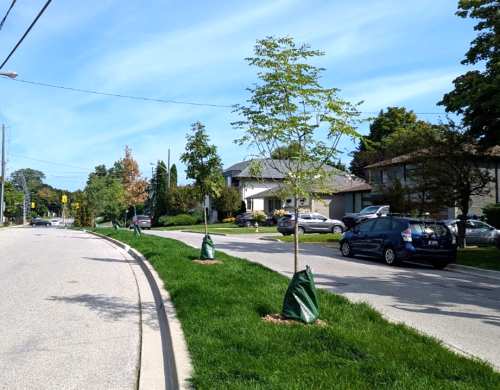
Tree planting on median with sod or meadow
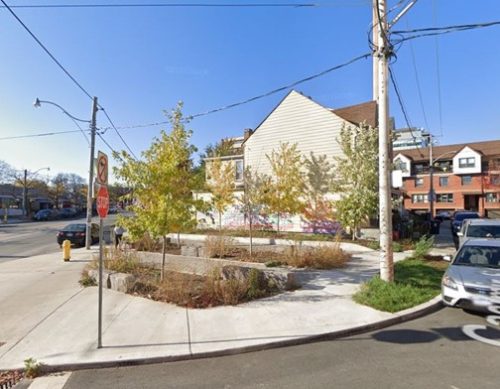
Plaza area with garden, trees, seat walls and permeable pavers
Public consultation on this project took place in October 2025. The public consultation report (linked below) provides a detailed summary of all activities that took place, proposed changes, and feedback received.
The City of Toronto is committed to the Vision Zero Road Safety Plan and its core principle: traffic-related fatalities and serious injuries are preventable, and we must work towards reducing them to zero. The Plan is a comprehensive strategy focused on improving road safety for all users, with a particular emphasis on our most vulnerable groups such as pedestrians, school children, older adults, and people cycling.
Between 2014 and 2025, there have been five people killed or seriously injured within the project limits involving pedestrians and motorists, and 20 collisions with pedestrians or people cycling on Weston Road from Steeles Avenue West to Lanyard Road. The proposed improvements are aimed at reducing future collisions while also enhancing streetscaping along the roadway.
In 2026, major roadway resurfacing is planned along Weston Road, from Steeles Avenue West to Finch Avenue West, to maintain a state of good repair.
This presents an opportunity to implement roadway improvements that prioritizes safety and accessibility for all road users, including pedestrians, people who cycle, take public transit, or drive, as well as individuals of all ages and abilities.it also provides an essential connection to existing and future transit and bikeways.
Weston Road is identified in Cycling Network Plan as a Major City-Wide Cycling Route, and has been approved for near-term implementation (2025 – 2027) by City Council (2024.IE14.3).
The City has several guiding policy documents and objectives that inform road safety projects:
To receive project updates by email, please contact Rachel Yanchyshyn, Senior Coordinator Public Consultation and indicate that you would like to be added to the mailing list, at Rachel.Yanchyshyn@toronto.ca.